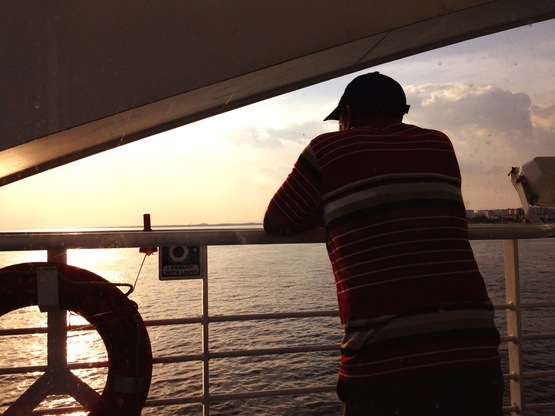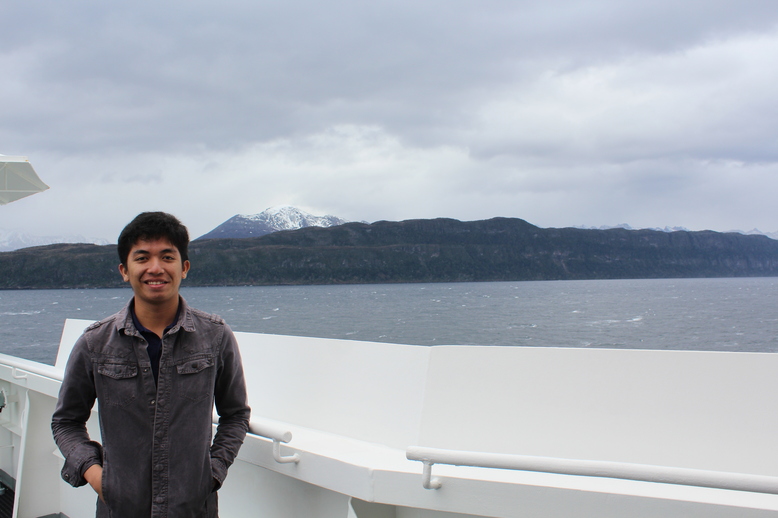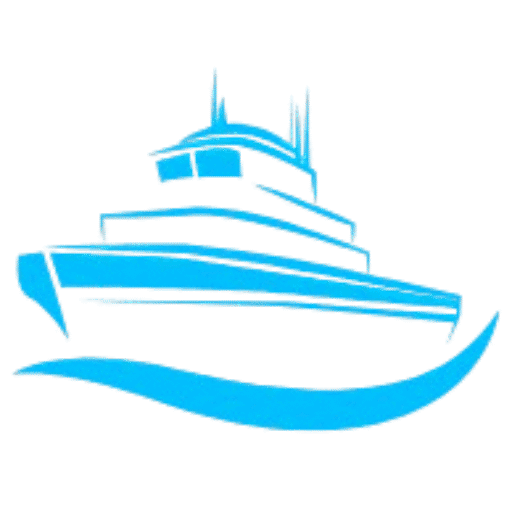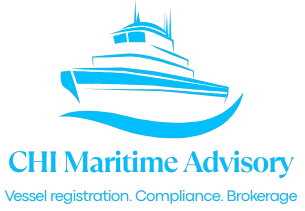
You may not understand the weight of the consequences of having expired Ballast Water Management Certificates until you face them.
You risk getting detained or fined heavily which will take a toll on your business. We don’t want that for you. And we’re sure you don’t want that for yourself.
That’s why we’re here to help you navigate through and help you get your ballast water management certificates in Cameroon.
At Cameroon Maritime Lawyers, we offer you expert legal guidance, proper documentation, and liaison with the Cameroon Ship Registry. Now you can get your documents fast.
Get in touch here to get started
Okay, let’s dive into everything you need to know about ballast water management.
What to Know About Ballast Water Management Convention
The Ballast Water Management (BWM) Convention is an international maritime agreement established by the IMO. It aims to prevent the spread of harmful aquatic organisms through ballast water discharge.
It requires all ships to manage and treat their ballast water to meet specific environmental standards before releasing it into the sea.
For vessel owners in Cameroon, compliance with this convention is mandatory to operate legally and maintain international recognition.
What Is the Role of BWMC?
The BWMC regulates how ships manage and discharge ballast water. It helps stop the transfer of invasive species and protects marine ecosystems from contamination.
- Prevention of Invasive Species: The BWM Convention stops foreign aquatic species from entering Cameroonian waters through untreated ballast discharge. These species can disrupt local food chains and damage fisheries. By treating ballast water, you help preserve native marine biodiversity and maintain balance in the ecosystem.
- Protection of Coastal Habitats: Contaminated ballast water often carries pathogens and pollutants that can degrade coral reefs and coastal vegetation. Proper ballast management prevents this contamination and keeps marine habitats healthy. This helps sustain local fishing communities and tourism along Cameroon’s coastline.
- Reduction of Waterborne Diseases: Ballast water can carry harmful microorganisms that spread diseases to humans and marine life. Implementing certified ballast treatment systems reduces these risks significantly. This protects both your crew and nearby coastal populations from health and environmental hazards.
Why Does BMWC Matters for Shipowners in Cameroon?
Complying with the BWMC is vital for shipowners in Cameroon to avoid penalties and ensure smooth port operations.
It also strengthens your vessel’s environmental credibility and international trading eligibility.
- Adoption and enforcement of the BWM Convention
Cameroon has fully integrated the Ballast Water Management Convention into its Merchant Shipping Act. This makes compliance a legal requirement for all vessels operating in its waters. This ensures that ships follow proper ballast treatment and discharge procedures to prevent marine pollution. Failure to comply can result in heavy fines, vessel detention, or loss of operational certification. - International recognition of certified vessels:
Ships holding valid Ballast Water Management Certificates are recognized internationally as compliant under IMO standards. This recognition allows you to trade freely across international ports without facing inspections or restrictions. It also enhances your vessel’s reputation and operational reliability in the global shipping market.
5. Legal Framework in Cameroon

The Ballast Water Management Convention (BWMC) sets global standards for how ships handle and discharge ballast water.
It aims to prevent the spread of harmful aquatic organisms and protect marine environments.
Let’s find out the various legal framework regulating vessel operations in Cameroon
Cameroon Merchant Shipping Act
The Cameroon Merchant Shipping Act provides the national legal framework that regulates vessel operations, ownership, and compliance with international maritime standards.
What else?
- Main national law governing ship certification and environmental compliance: The Cameroon Merchant Shipping Act sets the foundation for how ships are registered, inspected, and certified. It ensures vessels meet safety and pollution control standards before operating in Cameroonian waters. This law also aligns local maritime practices with international environmental obligations, including ballast water management.
- Penalties for non-compliance with ballast management regulations: Failure to comply with ballast water regulations in Cameroon can lead to heavy fines, vessel detention, or suspension of operating licenses. Authorities may also revoke a ship’s certification if it repeatedly violates discharge or treatment requirements. These penalties are designed to enforce strict adherence to international marine environmental standards and deter pollution in local waters.
IMO Standards and Regional Maritime Codes
Cameroon follows IMO standards and regional maritime codes to align its ballast water regulations with international and regional practices.
This ensures vessels meet global compliance standards and operate safely within West and Central African waters.
Let’s find out what the IMO roles are:
- Role of the IMO guidelines in certificate issuance: The IMO guidelines provide the framework that Cameroon follows when issuing Ballast Water Management Certificates. They define the technical standards for treatment systems, inspection protocols, and discharge limits. By adhering to these guidelines, your vessel’s certification remains valid and recognized internationally, ensuring smooth global operations.
- How do regional maritime codes align with these standards?: They integrate Cameroon’s national ballast water regulations with broader West and Central African maritime frameworks. Ensuring uniform compliance across the region. This alignment allows vessels certified in Cameroon to operate legally and efficiently in neighboring jurisdictions. It also strengthens regional cooperation in marine environmental protection and ballast water control.
Who Needs the Ballast Water Management Certificate?

Getting a Ballast Water Management Certificate in Cameroon is crucial for anyone operating vessels in national or international waters.
It proves compliance with environmental laws and prevents costly disruptions to your operations.
Without it, you risk detentions, fines, or loss of international credibility.
Here are the people who need the ballast water management certificate:
- All vessels carrying ballast water and operating under the Cameroon flag: You must obtain a Ballast Water Management Certificate to legally operate under Cameroonian jurisdiction. This certification confirms that your ship meets both national and international ballast water standards. Without it, your vessel can be detained or restricted from entering ports.
- Foreign-flagged vessels entering Cameroon ports: If your vessel sails under a foreign flag, you are still required to comply with Cameroon’s ballast water regulations upon entry. The certificate ensures your ship’s ballast management system meets IMO and national standards. Failure to present valid certification can result in heavy fines, inspection delays, or port entry denial.
- Shipowners seeking registration or renewal of vessel documentation: When you apply to register or renew your vessel under the Cameroon flag, authorities require proof of ballast water compliance. This certificate confirms that your vessel meets both environmental and operational safety standards. Without it, your registration process can be delayed or even rejected, disrupting your business operations.
Requirements for Obtaining the Certificate
To obtain the Water Ballast Management Certificate in Cameroon, you must meet specific regulatory, technical, and documentation standards set by maritime authorities.
Let’s find out the requirements below:
- Ballast Water Management Plan (BWMP) approved by recognized organizations: Every vessel must have an approved Ballast Water Management Plan (BWMP). And it must outline procedures for safe ballast handling and treatment. This plan must be reviewed and approved by a recognized organization authorized by Cameroon’s maritime administration. It ensures that your ship’s operations comply with both national and IMO ballast water management standards, preventing environmental contamination.
- Ballast water record book: You must maintain a Ballast Water Record Book that logs every ballast operation, including uptake, discharge, and treatment activities. This record serves as proof of compliance during inspections by Cameroon’s maritime authorities. It also helps you track your vessel’s ballast operations to avoid violations under the Ballast Water Management Convention.
- Vessel particulars and previous inspection reports: You must submit vessel particulars such as name, IMO number, tonnage, and ownership details, along with previous inspection reports. These documents help maritime authorities confirm your vessel’s identity and compliance history. They also allow inspectors to assess whether your ship meets the technical and environmental standards required for certification in Cameroon.
Technical and Legal Compliance Checks
Before you can receive a Water Ballast Management Certificate in Cameroon, your vessel must pass a series of technical inspections.
These checks verify that your ballast water treatment systems meet IMO standards and operate efficiently under real conditions.
Inspectors also confirm that discharge and exchange processes prevent contamination of local marine ecosystems.
The legal compliance review ensures your ship’s documentation aligns with the Cameroon Merchant Shipping Act and related international maritime laws.
Authorities check that all ballast-related activities are properly logged and approved by recognized organizations.
This step guarantees that your operations follow both national and international environmental regulations.
Lastly, the evaluation covers crew training and procedural compliance.
Maritime officers must demonstrate awareness of ballast water management protocols and emergency procedures.
These checks show that both the vessel and its personnel are capable of maintaining compliance throughout voyages within or entering Cameroonian waters.
- Re-assessment: We start by reviewing your vessel’s documents to ensure they meet every technical and legal standard required for certification. This helps you avoid delays or rejections once your application reaches the Cameroon Ship Registry.
- Document Submission: We handle the filing of your Ballast Water Management Plan (BWMP) and vessel particulars with the registry. You won’t have to worry about missing forms or incorrect documentation because we make sure everything is in perfect order.
- Inspection Scheduling: Once your paperwork is complete, we coordinate directly with inspection authorities to schedule your ballast system verification. This saves you time and ensures your vessel gets priority in the inspection queue.
- Approval and Issuance: After inspection, we follow up with the registry to speed up your certificate approval and issuance. You get your provisional or permanent Ballast Water Management Certificate quickly, without unnecessary back-and-forth.
- Renewal and Maintenance: We stay with you even after issuance, helping you maintain compliance for easy renewals every five years. With our guidance, you can focus on operations while we handle all ongoing regulatory requirements.
To Wrap It Up
With the right legal guidance, you can secure your certificate quickly, stay compliant with the Cameroon Merchant Shipping Act, and operate freely under international maritime standards. We take care of every step so you can focus on running your vessel confidently.
Ready to Obtain Your Water Ballast Management Certificate?
If you’re ready to get certified and avoid costly penalties, reach out to our maritime lawyers today and let’s help you get your certificate fast.

